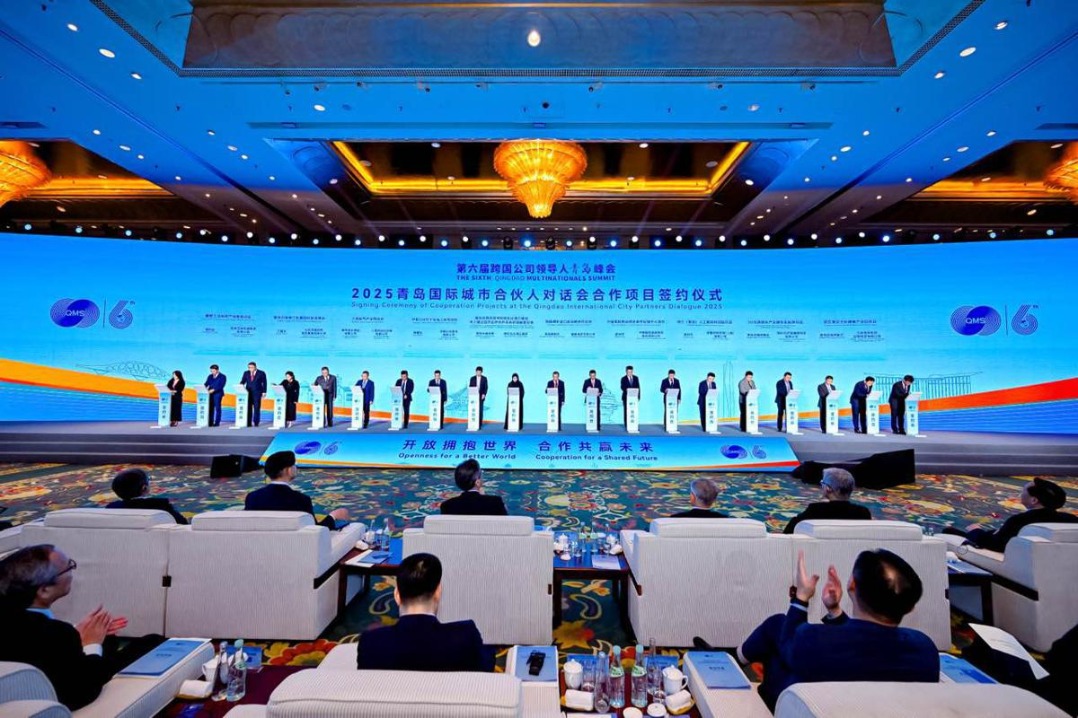US' strategies poison the well for cooperation with China

The National Security Strategy, National Defense Strategy and Nuclear Posture Review unveiled by the United States over the past two months have poisoned the well of the most consequential bilateral relationship in the world.
In them, China is called a challenge to US power, influence and interests, and accused of attempting to erode US security and prosperity. The Pentagon claims that long-term strategic competition with China and Russia are now its principal priorities.
The past two months have seen a torrent of anti-China rhetoric. Many US politicians, pundits and even news outlets have also jumped on the bandwagon in spreading their China threat theory. For instance, US Secretary of State Rex Tillerson warned Latin America of the imperial power of China on his trip to the region this week.
On the economic and trade front, the US has adopted discriminative measures against China largely because China is not a US ally.
Such a hostile climate created by the Trump administration is hardly conducive to cooperation between the two countries on important bilateral, regional and global issues. And there are many issues they should be cooperating on, from fighting terrorism and promoting global growth to mitigating climate change and working to prevent nuclear non-proliferation, including the denuclearization of the Korean Peninsula that is such a priority for both nations and the world today.
By using the rhetoric in its national strategies, the Trump administration has weakened the already fragile mutual trust between the two large nations.
The word "American imperialism" was used frequently in China only four decades ago. Since then, China has not used such defamatory words against the US. Foreign Minister Wang Yi did not point fingers at the US during his recent visit to Latin America.
But facts speak louder than words. Tillerson was unsuccessful in defaming China. After his meeting with Peruvian President Pedro Pablo Kuczynski, Peru's Trade Minister Eduardo Ferreyros said China is a good trade partner.
On the other hand, Tillerson's defense of the Monroe Doctrine reflects the deep-rooted thinking of an imperial power. Mexican Foreign Minister Luis Videgaray dismissed Tillerson's suggestion that Venezuela President Nicolas Maduro could be toppled by his own military.
It is true that the China-US relationship is characterized by both competition and cooperation. But while engaging in competition, the two countries should not let it spiral into conflict or confrontation, which would undermine the huge potential of cooperation.
There was deep concern about the bilateral relations before Donald Trump's inauguration as US president last year. Most of the concern was based on Trump's tough anti-China rhetoric during his presidential campaign and his phone conversation with Taiwan leader Tsai Ing-wen.
Fortunately, that concern dissipated greatly with the many subsequent close and positive interactions between Trump and President Xi Jinping. Trump's tweets in 2017 included many positive messages about China and Xi. The phone calls between the two leaders, and their meetings in the Mar-a-Lago resort in April, Hamburg in July and Beijing in November have all given bilateral relations an injection of positive momentum.
Their launch of the four high-level dialogue mechanisms has also shown the willingness of both sides to continue to expand their cooperation and manage differences.
China and the US have become much closer and similar today compared with 1972 when US president Richard Nixon made his icebreaking trip to China. However, the two countries will not be exactly the same largely due to their different histories, cultures, traditions and political systems.
It means that creating a good working relationship is extremely important for the two large nations and the world. The antagonistic rhetoric against China in the US' national strategies is simply counterproductive in this regard.
The author is deputy editor of China Daily USA.



































